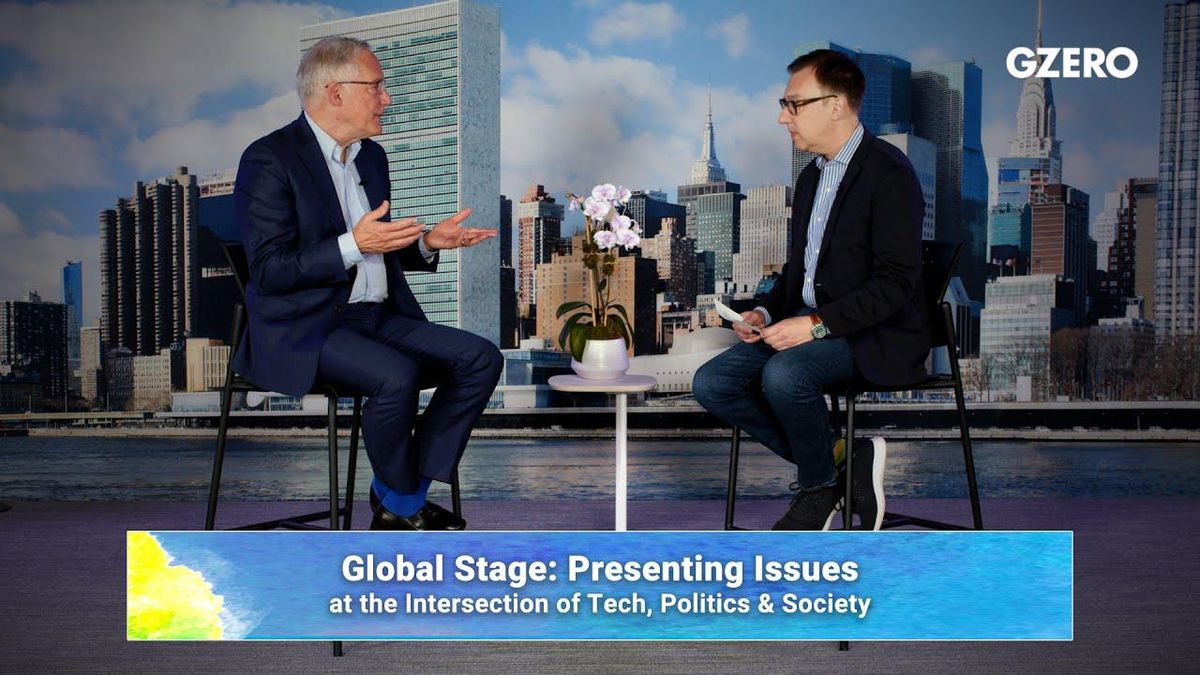GDP should reflect cost of polluting planet, says Microsoft's John Frank
As the 76th UN General Assembly gets underway, dealing with the pandemic is still the top priority for world leaders. But for John Frank, vice president of UN Global Affairs at Microsoft, COVID is not the only major challenge the world faces today.
One of them — included in the UN Secretary-General's new Common Agenda for strong, inclusive pandemic recovery — is a different way to measure economic growth beyond the traditional productivity-led GDP model by taking more into account the cost of pollution, one of the main causes of climate change.
"We need a common international standard and system for measuring carbon production and a ledger system, so that we can look back to our supply chain and people we supply can look to us," says Frank, who fears we're putting a lot more carbon into the air than we currently think.
Watch the above video for more insights from Frank, who sat down with Tony Maciulis, GZERO Media's chief content officer, as part of our ongoing Global Stage partnership with Microsoft.
- Should internet be free for everyone? A Global Stage debate ... ›
- Global Stage virtual events return this fall - GZERO Media ›
- UN Chief: Still time to avert climate “abyss” - GZERO Media ›
- The US is rejoining the Paris Climate Accord. What comes next ... ›
- The Graphic Truth: Tracking national climate action - GZERO Media ›
- UN Secretary-General Guterres has a warning for disunited nations - GZERO Media ›
- Global Stage virtual events return this fall - GZERO Media ›
- Podcast: UN Sec-Gen Guterres has a warning for disunited nations - GZERO Media ›

















